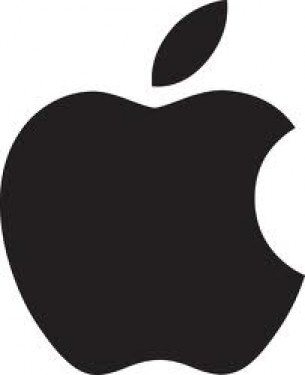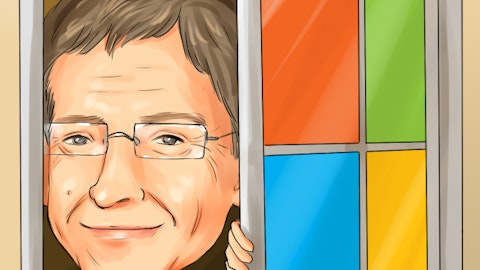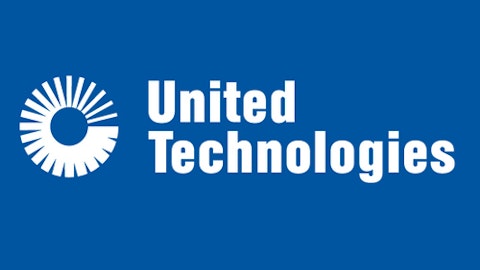Economist and Nobel laureate Paul Krugman took a break from Keynesian economics to blog about his thoughts on Apple Inc. (NASDAQ:AAPL) and Microsoft Corporation (NASDAQ:MSFT). Krugman, by his own admission, is not much of a tech observer. But his conclusion — that Apple Inc. (NASDAQ:AAPL) may in fact be more challenged than Microsoft Corporation (NASDAQ:MSFT) — is largely based on an easily observable economic phenomenon.
Network effects — the notion that a product becomes more useful based on the number of users — permeates the tech landscape, and remains the driving force behind the business model of many tech firms, particularly Apple Inc. (NASDAQ:AAPL) and Microsoft Corporation (NASDAQ:MSFT).

Network externalities are crucial when it comes to operating systems
When companies are dependent on the sale of operating systems, they are beholden to the nature of network effects. Windows, for example, has no value in and of itself other than its ability to serve as a platform to run other programs.
A consumer buys a Windows PC because most of the PC software in the world has been written to run on Windows computers. The more people own Windows computers, the more software is likely to be written for Windows, and thus the more valuable a Windows PC becomes.
Krugman’s take on the Apple business model
Losing Windows would hurt Microsoft Corporation (NASDAQ:MSFT)’s business, no doubt, but it isn’t Microsoft’s whole business by a long shot. In contrast, Apple’s entire business is built around its mobile operating system. iOS powers Apple Inc. (NASDAQ:AAPL)’s iPhones and iPads, which account for the overwhelming majority of the company’s revenue and profit.
If these devices ran a competing operating system, consumers would be unlikely to buy them. For the prices Apple charges, its products are technologically inferior to the competition. But if you want iOS, you have no choice but to buy Apple products.
Consumers want iOS in large part due to its app ecosystem. Krugman writes that a deeper bench of apps appears to be iOS’ primary advantage:
Now, unlike Microsoft Corporation (NASDAQ:MSFT), Apple Inc. (NASDAQ:AAPL) isn’t selling an inferior product. But it’s selling products that are little if any better than competitors, at premium prices. How can it do that? Again, network externalities: mainly a much deeper bench of apps.
That’s definitely the case, and there’s a litany of examples to prove it. Most recently, Electronic Arts‘ decision to make Plants vs Zombies 2 an iOS exclusive (for the time being).
Consumers vs IT managers
Krugman argues that, on a comparative basis, Apple’s lock on the mobile market is much less concrete than Microsoft’s lock on the traditional PC market, primarily for one reason: As an enterprise company, Microsoft Corporation (NASDAQ:MSFT) has historically sold to the heads of IT departments.
Given the nature of corporate bureaucracies, IT departments are much more likely to stick with a platform. In contrast, individual consumers can be fickle. By focusing on selling directly to the consumer, Apple Inc. (NASDAQ:AAPL) may have built a larger cultural footprint than Microsoft, but it’s more susceptible to shifts in consumer preference.
BYOD blurring the line
Krugman offers no supporting evidence for his theory, although it appears to make sense intuitively. However, the notion of IT departments calling the shots when it comes to electronic preferences is fading fast.
For example, consider BlackBerry. For the most part, its business model was built on selling phones to the very IT heads Krugman believes are too conservative to make a change. Yet, that didn’t stop Apple coming in and destroying BlackBerry’s business. The trend of bring-your-own-device eviscerated any protection BlackBerry had when it came to corporate loyalty.
Android could replace both iOS and Windows
What Apple did to BlackBerry, Google Inc (NASDAQ:GOOG) could do to both Windows and iOS. The growth of Android’s market share has been nothing short of astounding in recent years, with Android phones now accounting for about 80% of the smartphones sold worldwide.
But Android’s dominance could extend beyond just the phone. Research firm Gartner said back in April that it expects Android to obliterate Windows within four years. Although Android may never become a desktop operating system, the growth of tablets and smartphones has had some cannibalizing effects on traditional PCs.
For Windows, it might only be a matter of time. But for iOS, it’s a bit trickier.
Android surpassed iOS in market share for the first time over two years ago. Yet, developers continue to flock to iOS when it comes to making new apps. As long as that software gap exists, iOS is likely to remain relevant.
Operating systems and network effects
As Krugman observes, companies that depend on selling operating systems rely on network effects — operating systems only have value if they’re widely used. Once dominance in an operating system is established — like Windows in the PC realm — it’s hard to break, as the large software library makes switching to a rival system nearly impossible.
With Android’s exploding market share, iOS’ advantage in terms of software might not always be there. As Krugman notes, it will be difficult for Apple to sell its relatively expensive products if its operating system does not have the edge. If Android finally becomes the premiere mobile-developer platform, Apple Inc. (NASDAQ:AAPL) could have much to lose.
But as long as Apple maintains its app advantage over Android, it should have nothing to fear.
The article Apple Is Doomed Says Paul Krugman originally appeared on Fool.com and is written by Sam Mattera.
Sam Mattera has no position in any stocks mentioned. The Motley Fool recommends Apple and Google. The Motley Fool owns shares of Apple, Google, and Microsoft.
Copyright © 1995 – 2013 The Motley Fool, LLC. All rights reserved. The Motley Fool has a disclosure policy.





